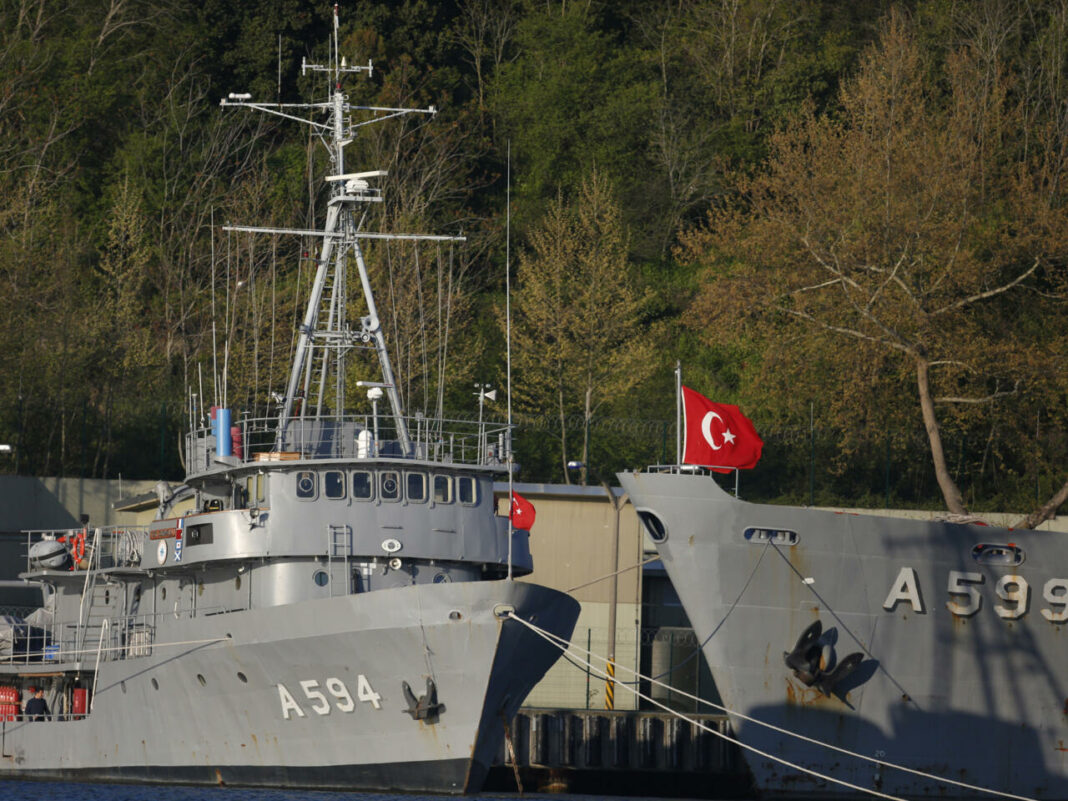Turkey is undergoing an unprecedented naval expansion, positioning itself as one of Europe’s largest naval powers. While some neighbours are alarmed, Ankara insists the build-up is defensive and meant to meet growing regional commitments.
Radio France Internationale, September 14, 2024
“We must have a strong and effective navy to live in peace on our lands,” said President Recep Tayyip Erdogan after commissioning the latest of six planned submarines.
Along with a new helicopter carrier, frigates and over a dozen warships under construction, this is part of Erdogan’s push to bolster the Turkish navy.
“It fits Erdogan’s political agenda of exerting influence overseas, from Qatar to Somalia to Libya,” said Serhat Guvenc, a professor of international relations at Kadir Has University in Istanbul.
“For the navy, it means a greater role in the defence of the country – no longer just territorial, but forward defence from overseas.”
New course
The change has transformed the navy’s mission.
“Turkish sailors used to sail off to sea, but they would come back on the same day to their home bases and spend the night in their homes. That’s no longer the case,” Guvenc says.
“The Turkish navy is evolving into a major regional power.”
Turkey’s military presence abroad includes bases in Qatar, Libya and Somalia, with naval agreements in place. Ankara claims its expansion addresses growing threats around the region.
“When you look at the conflicts in the Black Sea, the Mediterranean, and the Red Sea, they are all around Turkey,” said Mesut Casin, a Turkish presidential adviser and professor at Yeditepe University.
He also pointed to Turkey’s NATO role: “The naval modernisation benefits NATO and the security of Western allies, especially in terms of oil and navigation security.”
Ankara has been quick to flex its new naval muscles. Four years ago, Turkish warships allegedly targeted a French NATO vessel enforcing an arms embargo on Libya.
Also read: Turkey and Egypt bury the hatchet with a dozen new bilateral deals
Regional concerns
Greece, with longstanding territorial disputes with Turkey in the Aegean and Mediterranean, has voiced particular concern. Israel, too, has raised alarms over Turkey’s naval growth, including military drones deployed in Turkish-controlled northern Cyprus.
“Some of Turkey’s naval moves, like the UAV base in Northern Cyprus, could be aimed at Israel,” said Gallia Lindenstrauss, a senior researcher at the Institute for National Security Studies in Tel Aviv.
« This doesn’t mean again there will be a direct confrontation, but it does mean that it is something that the Israeli army has to calculate for. »
Greece is also modernising its navy in response to what it sees as the Turkish threat. Prime Minister Kyriakos Mitsotakis recently reaffirmed the need for a “deterrent power” against Turkey.
Also read: Growing military buildup in Azerbaijan and Armenia a concern for peace talks
Meanwhile, Israel’s growing naval presence in the Eastern Mediterranean, including the deployment of advanced naval assets and joint military exercises with regional partners, is adding to Turkish concerns.
« The Turkish military has begun to feel concerned about the deployment of its [Israel’s] nuclear missile capable submarines in the Mediterranean, » said naval expert Guvenc.
“As long as they were in the Red Sea or Indian Ocean, it wasn’t a problem. But once they shifted to the Mediterranean, it became a potential threat.”
Guvenc is warning that escalating regional suspicions risks spiraling out of control.
“It’s a vicious circle. Turkey builds a new navy to address threats, and now its neighbours feel threatened by Turkey’s naval growth. This is how arms races start, and they don’t tend to end well.”
Turkish shipyards are working at full capacity to meet the country’s growing naval demands. Analysts say this will likely only deepen fears and tensions with its neighbours.
By Dorian Jones

